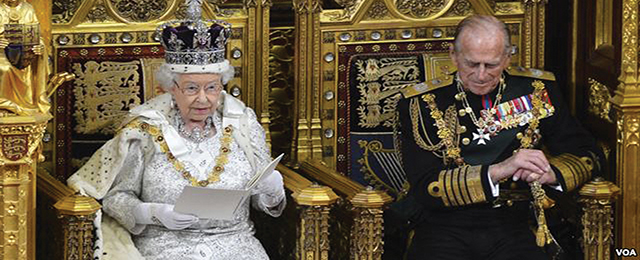Legislative agenda: EU referendum, taxes and devolution
EU referendum: The government will set out “early” legislation to hold an in/out referendum on Europe before the end of 2017. Negotiations with EU peers aim to review the “UK’s relationship with the EU and pursue reform for the benefit of all member states”. PM Cameron will initiate bilateral discussions, touring European capitals ahead of an EU summit on 25/26 June. So far, European heads of state and governments seem open to improving the functioning of the union within the existing legal framework, but have ruled out a treaty change within the timeframe put forward by the British Prime Minister. David Cameron’s basis for renegotiation is unclear at this stage but might include attempts to subdue EU immigration to the UK and fully deliver a single market in the EU.
The legislation presented to parliament will still have to frame questions relating to the actual organisation and voting rights, the wording of the question, etc.
Tax reform: The government will introduce a bill preventing income tax, VAT or national insurance rising over the next legislature (“tax lock bill”) and excluding people on minimum wage from income tax (“tax-free minimum wage”). In order to achieve savings’ targets, the majority of working-age benefits will be frozen for two years starting in 2016-17 and the maximum amount of benefits for a non-working family will be capped at £23,000. Further detailed measures such as pegging the level of personal allowance increases to the national minimum wage, lower inheritance tax and increased personal allowance to £12,500 by 2020, will be presented in a supplementary budget on 8 July.
MPC meetings: The government will introduce a bill allowing the Bank of England to reform its communication and transparency practices (along the lines of the Warsh review). Starting from August 2015, the Bank will publish both the minutes and the inflation report (relevant months) at the same time as its policy decisions. From 2016, the number of policy meetings a year will move from 12 to eight. Transcripts of policy meetings will be released with an eight-year lag and there will be plans to hold joint MPC and FPC meetings.
Employment: The government will aim to create 3mn more apprenticeships funded by lowering the benefits cap from £26,000 to £23,000. Ministers will have to report annually on the number of apprenticeships created. A bill to reform the strike law will be introduced, de jure forbidding strike action unless 40% of eligible union members vote in favour. Efforts to reduce regulations on business will be intensified as well as efforts to return people to full employment and “raise the economy’s productive potential”.
Devolution: The government will aim to deliver devolution promises made to Scotland ahead of last year’s referendum (Smith Commission recommendations), as well as an enhanced institutional and political framework for Wales (Wales Act 2014) and Northern Ireland (Stormont House Agreement). To accommodate English MPs, the government will also introduce a bill requiring the consent of a majority of English MPs when voting on English-only matters. Concrete plans to speed up devolution (transport, housing, planning and policing) to cities (“Northern Powerhouse”) will also be announced over the next parliament as well as efforts to extend high-speed train connections (London-Birmingham).
Healthcare: The government will aim to implement its five-year NHS plan, increasing funding to an extra £8bn a year by 2020 and creating ‘a truly seven-day NHS’. The government also plans to double the amount of free childcare to 30 hours for three- and four-year olds from 2017.
Housing: The government will extend the right-to-buy scheme allowing 1.3mn housing association tenants to purchase their homes with the same discounts offered to council tenants.
Human Rights: As the government had to review its plans to fast-track a new British Bill of Rights due to backbench opposition, the Queen’s speech did not include any reference to the matter of replacing the Human Rights Act and repudiating the European Convention on Human Rights.
The next few weeks: supplementary budget on 8 July and EU summit on 25/26 June
Over the next few weeks the government will focus on the supplementary budget (to be presented on 8 July) and on initiating discussions with its EU counterparts on the renegotiation of the UK’s membership of the EU. After meeting J-C Juncker, the EC president earlier this week, PM Cameron will be meeting most heads of state and governments bilaterally in the run-up to the June EU summit.
According to media reports, France and Germany are currently working on a joint initiative to be presented at the June EU summit. The pact aims to improve the governance of the euro area within the existing legal framework, ie without the need for treaty changes. It calls for the setting up of a dedicated structure for the EA in the European Parliament, urges better implementation of current policies but does not mention binding economic contracts or debt pooling. This initiative could substantially weaken David Cameron’s basis for negotiation if he insists on a fundamental overhaul of the union including treaty changes.






Be the first to comment on "UK Queen’s Speech launches Conservative push to legislate on EU, taxes"